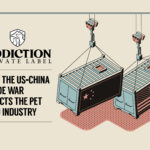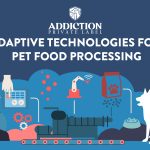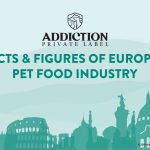In light of the controversy surrounding grain-free dog food diet and DCM or dilated cardiomyopathy, the question of taurine supplementation in pet food production, particularly dog food, is now on the table.
A little backgrounder
According to Vetstreet, cardiomyopathy has three major categories: dilated cardiomyopathy (DCM), hypertrophic cardiomyopathy (HCM), and restrictive cardiomyopathy (RCM). They are all considered idiopathic or of causes not yet fully understood.
DCM is mostly common in dogs of certain breeds, particularly the large ones. DCM is characterized by the inability of the heart to contract properly, causing dilation, and eventually, heart failure. It is presumed that it is hereditary. Cats may also develop DCM. But the most common cardiomyopathy in cats is HCM.
Although HCM affects cats of certain breeds, all cats are potentially at risk. This is where the heart muscle thickens and can’t relax and contract normally, thereby decreasing the blood the heart can handle. When this happens, heart is pumping not enough blood to rest of the body, causing heart failure. HCM is also presumed to be hereditary.
RCM is a rare kind of cardiomyopathy where the muscle of the cat’s heart fills in, encroaching the four chambers, severely limiting blood output that causes cardiac arrest.
Taurine supplementation
In most mammals, taurine is an amino acid that is synthesized from a different amino acid called cysteine and is therefore not required. But cats cannot synthesize taurine efficiently or cannot synthesize at all. That’s why taurine is a required nutrient in cat food and not in dog food since it is believed that dogs can make their own.
While some pet food manufacturers have included taurine in their dog food, the recent developments surrounding grain-free dog food diet and DCM will have an impact on whether there’s a need to make taurine a required nutrient for all dog food. That being said, and just to be on the prudent side, it makes good sense to have taurine in your private label dog food.
Ask your private label manufacturer to include taurine in your dog food formula. Your private label’s food technologists and nutritionists will know the right level of taurine needed in the formulation of your private label pet food.
The right private label partner
Having the right private label partner for your dog food means a whole world of difference for you. Especially when it has access to a vast panty of raw materials from the cleanest place on earth to source and manufacture pet food—New Zealand. It also has a complete solution for your pet food production, from research and development, to raw materials sourcing, from product manufacturing to packaging services to distribution for target markets’ supermarket and retail chains.
Addiction Foods Private Label follows a strict Code of Conduct that more than meets the highest standards for food safety. Product integrity and food safety have always been Addiction Foods Private Label’s top priority. That’s why follows a Hazard Analysis and Critical Control Points (HACCP) program by New Zealand’s food and safety authorities.
Start your journey with Addiction Foods and see for yourself what we can do for you.
—————————————————————————————————————————————-
For further reading:
1. http://veterinarymedicine.dvm360.com/journal-scan-dcm-and-boutique-dog-foods-can-taurine-supplementation-help
2. http://www.cotonclub.org/How_much_taurine.pdf
3. https://www.healthypetfoods.ca/blogs/news/taurine-in-pet-food-dissolving-misconceptions







